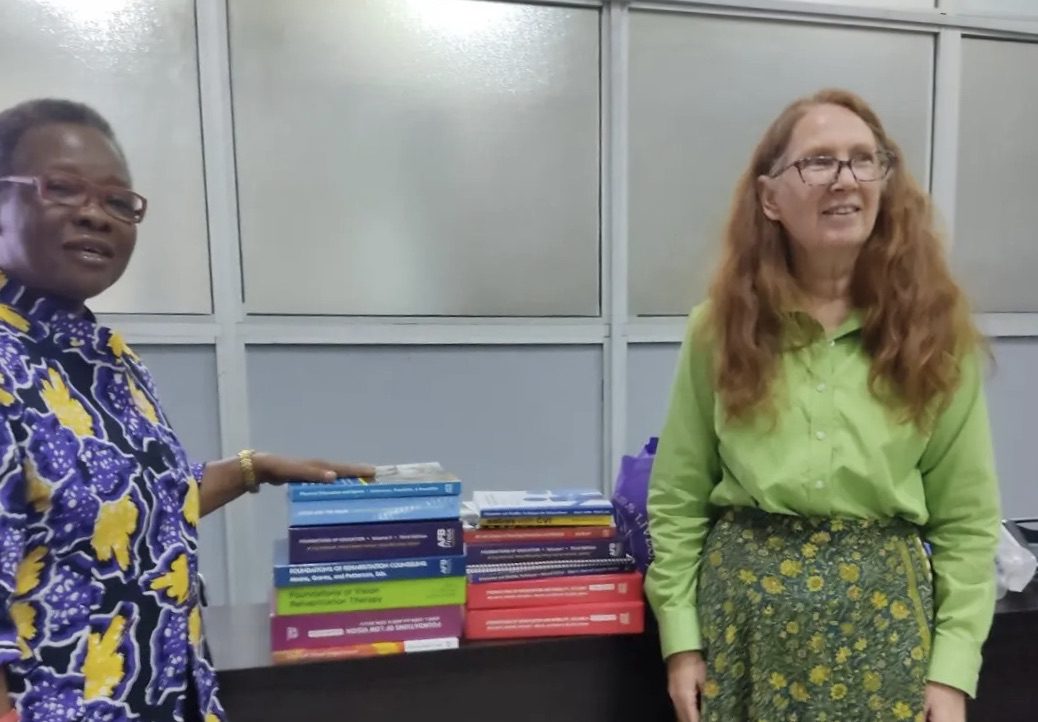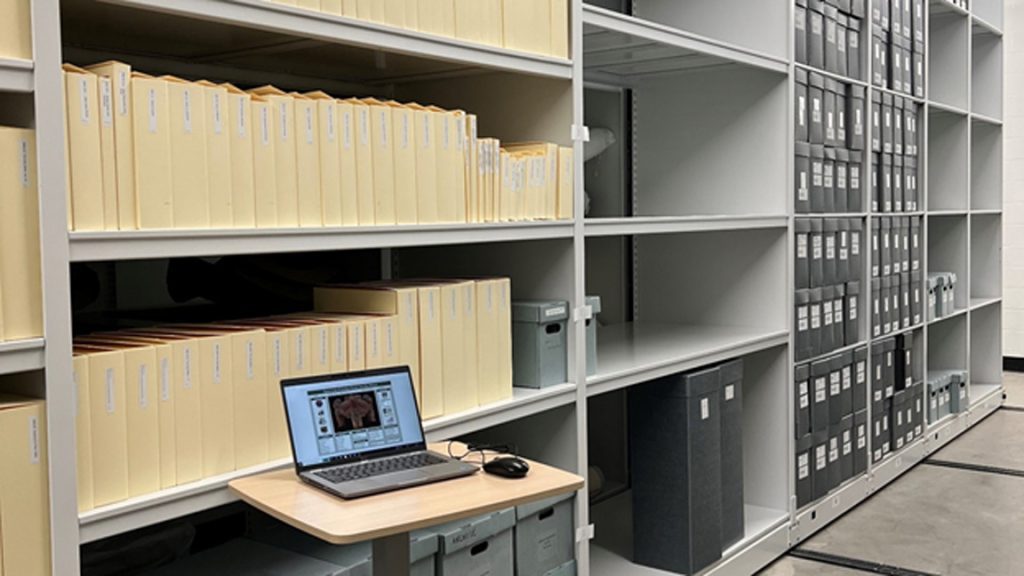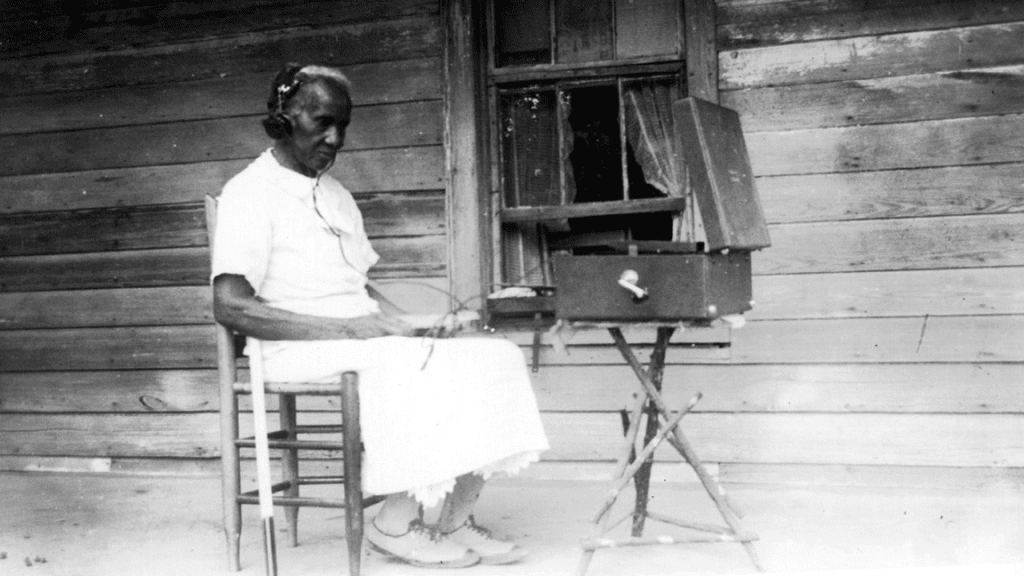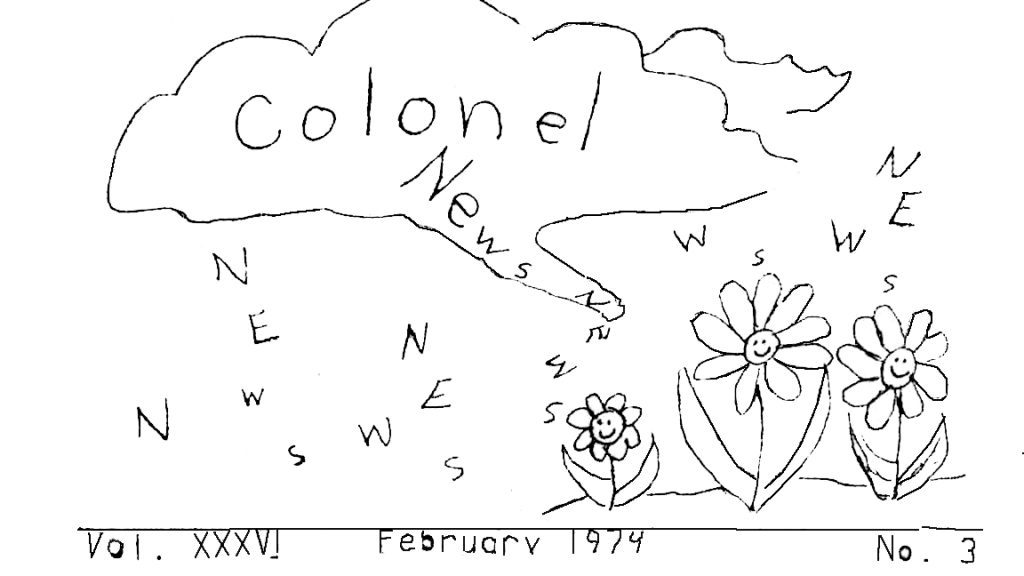To ensure gift delivery by 12/25, please place orders via UPS shipping no later than 12/17.
CloseCross-Cultural Collaboration: An Interview with Dr. Elyse Connors on Her Fulbright Trip to Lagos

International efforts in blindness often involve cross-cultural collaboration to address critical gaps in services and training. We had the pleasure of interviewing Dr. Elyse Connors, who has been deeply involved in this vital work.
Meet Dr. Elyse Connors
Dr. Elyse Connors is an associate professor at Western Michigan University in the Department of Blindness and Low Vision Studies. She is certified in Orientation & Mobility (O&M) and Visual Rehabilitation Therapy (VRT) and has her PhD in Interdisciplinary Health Sciences. At WMU, she co-coordinates the VRT master and certificate programs. Her areas of research are safer medication management for persons with vision loss, using Geographic Information System (GIS) mapping to address health resource inequities, and the current landscape for VRTs.
Supported by the Fulbright Scholar Program, Dr. Connors was awarded six months in Lagos, Nigeria working at the University of Lagos (UNILAG) and the West African Regional Research and Training Centre for Low Vision Rehabilitation (WARTCLOR). She supported faculty members in the development of class curriculum by providing resources and education, as well as to connect the new UNILAG WARTCLOR programs to blind rehabilitation agencies in Nigeria for strong collaboration.
Q: Can you tell us about the Fulbright Program?
The U.S. Fulbright Program was established by Congress in 1946 with the goal of increasing mutual understanding and support of peaceful relations between the people of the U.S. and the people of other countries. The program offers awards to U.S. citizens to teach, conduct research, and carry out professional projects around the world. Because of WMU’s relationship with Fulbright Scholar Dr. Okonji, I was able to work directly with UNILAG to carve out a project, which built upon the work that Dr. Okonji had completed while at WMU.
To receive a Fulbright Award is a great honor. The program is stringent and very well organized. They provide educational and financial resources and support for award recipients. It is a wonderful program.
Q: APH Press donated several textbooks for you to deliver to the university during your trip. Can you tell us how those textbooks are being utilized?
I am so thankful for APH Press’s generous donation of books. As you know, the Foundations series and other APH Press books are the main textbooks across blind rehabilitation programs in the United States. Low vision and blindness are low incidence disabilities. Our blind rehabilitation disciplines (i.e. VRT, O&M, etc.) are small. These books provide the foundation for the education of nearly every blind rehabilitation professional. So, for WARTCLOR to have access to the books, the faculty are set up with the information they need to provide a solid foundation for their new students. The faculty were thrilled to receive the books, and I know they will be well used.
Nigeria is facing its worst economic crisis in a generation. The price of fuel, food, and medicine is out of reach for many. Books are rarely required at the university level, as the students and faculty do not have the resources to purchase them. So, for WARTCLOR to have a copy of these resources to use, they are a treasure.
Q: What was the most memorable part of your trip?
The Nigerian people are warm and hospitable. They are kind, generous, and hard-working. Nigerians wear brightly colored batik fabrics that are beautiful. They are a more formal culture and proud of their heritage. The fabrics and tailoring of clothes for both men and woman were such a beautiful expression of their culture and values.
I had the opportunity to visit quite a few blind rehabilitation agencies and schools for the blind. The self-sufficiency of the blind community in Lagos is to be admired. They are hard-working people and provide for one another, in the midst of such challenging economic times.
Q: Do you have any advice for others in the field who would like to provide assistance internationally?
Like all cross-cultural collaborations, it’s imperative that the visitor go with an open mind to learn and receive, as well as to give. There are many great ways to solve problems, and cross-cultural visits are as educational to the visitor as to the host country. We don’t have all the answers. There are many right answers, and the host country’s people have the best information on what they need and what solutions will work for them.
Q: Is there anything else you would like to share?
The Fulbright Program really is something that our country can be proud of. I feel really fortunate to have been supported by them and to have had the opportunity that I had.
I appreciate, too, how people in my own community supported my journey, including APH’s investment.
Share this article.
Related articles

Running a Marathon: Moving a Museum Collection
With the Dot Experience at APH officially breaking ground, we have been incredibly busy behind the scenes preparing for construction...

Finding Sadie
“The blind veterans here in the Helen Keller class are able, thru talking books, to obliterate the tedious hospital hours...

The Kentucky School for the Blind Alumni Association Archive
In 2020, the Kentucky School for the Blind [KSB] Alumni Association signed an agreement that gave the care of the...
